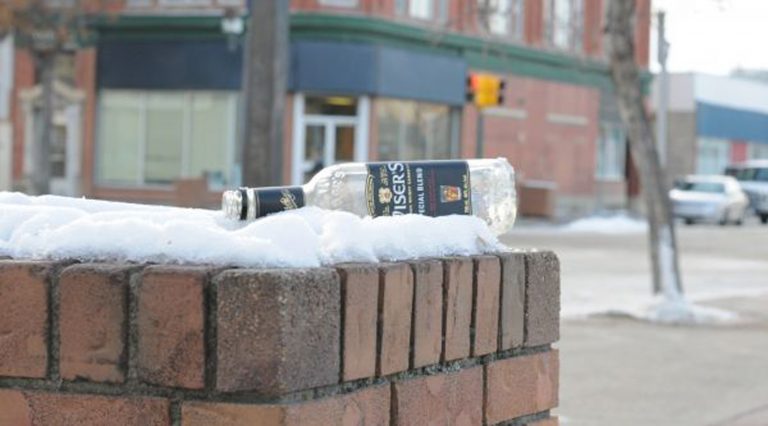
Changes are coming to provincial alcohol policy, but reduced store hours and decreasing privatization likely won’t be among them.
Those two recommendations were among the more than 50 made in a pair of reports released by Canadian Alcohol Policy Evaluation (CAPE) project researchers on Thursday.
While representatives from the Saskatchewan Liquor and Gaming Authority (SLGA) praised the report for its depth, it appears those two recommendations won’t be up for consideration in the near future.
“We do look toward and value research like this being done because there are often many ideas for things that could be done that might help mitigate some of the harm from alcohol,” said Jim Engel, SLGA’s vice-president of corporate services and gaming operations. “But the real challenge is coming up with solutions that are proven to actually be a benefit, rather than just someone’s idea.”
Under the province’s current Alcohol Control Regulations, retail liquor stores are allowed to remain open from 8 a.m. to 3 a.m., seven days a week, however not all of them do. For example, Prince Albert’s two remaining SLGA liquor stores are open respectively from 9:30 a.m. to 9 p.m. and 10 a.m. to 6 p.m., six days a week. Only one of those stores is open on Sundays, but at reduced hours. Non-retail liquor permit holders can serve customers for slightly fewer hours. Legally, they’re allowed to serve alcohol from 9:30 a.m. to 2 a.m.
Engel said many outlets set reduced hours well within the legal limit for business reasons. He added that it’s important that government policy find a balance between lessening potential harm, while also providing convenience and accessibility that consumers expect.
Right now, the government is satisfied it has found the right balance.
“It’s not actively being looked at,” Engel said when asked if reducing hours was under consideration.
“I think on that one particular issue, we’re in a reasonably good spot, at least compared to the norm of the other provinces and territories in Canada,” he added.
The trend towards privatization is another issue researchers sited as a cause for concern. Saskatchewan has more than 700 liquor retailers that sell alcohol for off-premise consumption, however all but 36 are privately owned. The provincial government has slowly increased the number of private retailer outlets in the province by selling off SLGA permits, like they did in 2016 when 39 existing stores were privatized.
Engel said recent privatization efforts were very small, affecting only a few of the province’s hundreds of stores. He also said he’s willing to looking at research around the drawbacks of privatization, but at the moment, he hasn’t seen any.
“Generally speaking, what matters is the number of stores and how many access points there are, not necessarily who operates them,” he said. “I would certainly be open, if the researchers could demonstrate this. I’m not aware of any research that has conclusively demonstrated that there is an inherently a fundamental difference between a privately operated store and a publicly operated store in terms of social responsibility.”
Engel added that any efforts to roll back privatization would be left to the province’s elected officials.
As for what changes they are looking at, Engel said they’re still going over the report, but plan to look at what’s working in other provinces with the goal of bringing it to Saskatchewan.
“A study like this is very helpful for us because it documents some of the initiatives that are in place in other jurisdictions,” he said. “We can use that as sort of feed stock in terms of generating some ideas and some options for other things we can look at doing in Saskatchewan.”
Restricting liquor store hours of operation and rolling back privatization were just two of the recommendations made by the report authors. Others involved further increasing the price of drinks with high alcohol content, and providing more regulation for social media accounts operated by bars and clubs. Researchers said increasing the cost of alcohol, or putting new taxes on it, would not be a popular decision. However, they added that there was strong evidence it would increase government revenues while decreasing consumption and reducing alcohol related crime.
According to the report, Saskatchewan has one of the best pricing and taxation policies in the country, although researchers said high-alcohol content drinks should be a bit more expensive. With that in find, they suggested Saskatchewan focus on additional areas, such as reducing privatization and hours of operation.
“(A) couple areas that I think are a cause for concern is you have pretty long selling hours, selling up until 3 a.m. I believe. The other one is there seems to have been, over time, a sort of a transition to more of a privatized approach, having more private outlets rather than government run outlets,” said Norman Geisbrecht, emeritus scientist with the Centre for Addiction and Mental Health, one of two major contributors to the CAPE project reports. “If you have longer hours you’re likely to have more harm from alcohol, so those things, I think, are things that could be addressed by looking at what some of the other provinces are doing, and would be helpful in the short-term or long-term (reduction of) the harm from alcohol.”
According to the Canadian Institute for Substance Use Research (CISUR) roughly 15,000 people die every year for reasons attributed to alcohol, with an estimated financial cost of roughly $15-billion. In Saskatchewan, data from 2014 shows alcohol sales generated around $391-million in revenue, but cost the province an estimated $563-million.
“The revenue covers about 75 per cent of the economic costs, and that’s a fairly conservative estimate,” CISUR director Tim Stockwell said. “There are quite a lot of things that are not included in there.”
